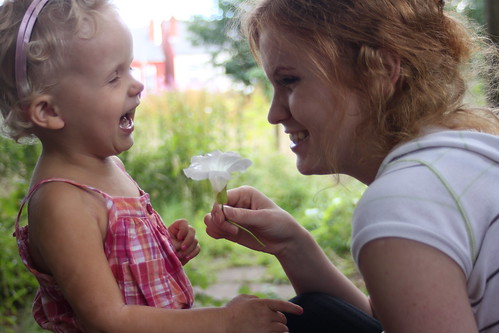|
In the enchanting world of lullabies, where melodies are meant to soothe and cradle the innocent slumber of our little ones, there exists a shadowy corner. Here dwell the eerie and heart-wrenching tunes that have been passed down through generations. These are the lullabies that defy the conventional, daring to venture into the realm of the tragic, the horrific, and the profoundly sad.
In this exploration of "Tragic Kids Lullabies," we will journey through the mysterious and enchanting world of these haunting melodies. We'll uncover the stories behind two iconic lullabies, "Ani Couni" from the Arapaho Natives and the infamous "Rock-A-Bye Baby." Additionally, we'll introduce you to three more dark lullabies that have woven tales of sorrow and resilience. Along the way, we'll offer valuable insights and tips on how to use these haunting tunes to teach resilience and empower our children to navigate life's challenges with courage and grace. Ani Couni: The Haunting Whisper of the Arapaho Natives Allow the mesmerizing notes of "Ani Couni" to transport you to the vast landscapes of the Arapaho Natives, where this haunting lullaby was born. "Ani Couni" is a powerful, ancient lullaby that carries the weight of history in its mournful melody. The Arapaho people, native to the plains of North America, used this lullaby to teach their children about resilience and the harsh realities of life. Its lyrics speak of a child lost in the wilderness, facing danger, starvation, thirst, and darkness, yet finding the strength to survive. Embrace "Ani Couni" as a tool to teach your child about courage and resourcefulness. Play it during bedtime, and as your child drifts into slumber, share stories of bravery and survival to inspire their dreams. Start playing "Ani Couni" tonight and encourage your child to face their fears, just like the brave Arapaho children did. Rock-A-Bye Baby: The Ominous Lullaby of Cradle's Edge You've surely heard the familiar strains of "Rock-A-Bye Baby," but do you know its dark origins? This well-known lullaby has a chilling history. Its lyrics describe a baby cradled in a treetop, at the mercy of the wind and the bough's inevitable fall. The true story behind this lullaby is one of survival, as mothers sang it to remind their children of life's precarious nature. Embrace the darkness of "Rock-A-Bye Baby" to instill in your child the importance of resilience and adaptability. Use this lullaby as an opportunity to discuss life's uncertainties and how to navigate them. Tonight, when you tuck your child in, sing "Rock-A-Bye Baby" with a gentle yet firm tone. As you do, tell them stories of overcoming adversity, encouraging them to face life's challenges with determination. Three More Haunting Lullabies for Brave Hearts1. "Hush Now, My Darling" The tender yet haunting melody of "Hush Now, My Darling" will beckon you into a world of bittersweet lullabies. This lullaby's poignant lyrics narrate the tale of a lost soul seeking solace in the night's embrace. The melody's melancholic notes offer a gentle reminder that even in darkness, there's beauty to be found. Use "Hush Now, My Darling" to teach your child about finding comfort in difficult times. Discuss the significance of seeking beauty in unexpected places. Incorporate "Hush Now, My Darling" into your nightly routine, creating an atmosphere of solace and reflection. 2. "Moonlit Lament" Let the haunting strains of "Moonlit Lament" draw you into a world of moonlit mysteries. This lullaby's haunting melody weaves a tale of a moon that listens to the woes of the world. Its lyrics speak of whispered secrets and hidden fears, reminding us that even celestial bodies can empathize with our struggles. Use "Moonlit Lament" to encourage your child to share their thoughts and fears. Discuss the power of expression and the support that can come from unexpected sources. Sing "Moonlit Lament" under the night sky, fostering a sense of connection between your child and the world around them. 3. "Echoes of Dreams" The ethereal notes of "Echoes of Dreams" beckon you to explore the enigmatic realm of dreams. This lullaby's enchanting melody captures the essence of dreams, from whimsical fantasies to poignant reflections. Its lyrics evoke a sense of longing and introspection, reminding us that dreams hold a mirror to our innermost desires. Use "Echoes of Dreams" to spark conversations about aspirations and self-discovery. Encourage your child to ponder their own dreams and goals. Make "Echoes of Dreams" a part of your bedtime routine, creating a space for your child to explore their thoughts and ambitions. Harnessing the Power of Tragic Kids Lullabies Now that we've explored the haunting stories behind "Ani Couni," "Rock-A-Bye Baby," "Hush Now, My Darling," "Moonlit Lament," and "Echoes of Dreams," let's dive into how you can use these lullabies to empower your child: 1. Create a Ritual Establish a bedtime ritual that includes these lullabies. Consistency and routine can bring a sense of security to children, helping them better manage change and uncertainty. 2. Storytelling Accompany the lullabies with stories of bravery and survival. Share tales of real-life heroes and heroines who have overcome adversity, reinforcing the message of resilience. 3. Encourage Questions Create an environment where your child feels comfortable asking questions. Use the lullabies as conversation starters to discuss their fears and concerns, helping them build emotional intelligence. 4. Empower with Words Teach your child the meaning of the lyrics. Explain the metaphorical elements in a way they can understand. This will empower them with a deeper understanding of life's complexities. 5. Dream Exploration Encourage your child to share their dreams in the morning. Discuss how the lullabies may have influenced their dreams and use this as a platform for open dialogue. Conclusion: Embrace the Darkness for a Brighter Future In the world of lullabies, where sweet dreams are the norm, we've ventured into the depths of tragic kids lullabies. These haunting melodies, "Ani Couni" and "Rock-A-Bye Baby," have the power to teach our children valuable lessons about resilience, adaptability, and the unpredictable nature of life. As parents, it's our duty to equip our children with the tools they need to face the world's challenges boldly. By introducing these lullabies into their bedtime routine and weaving in stories of triumph over adversity, we not only prepare them for life's uncertainties but also nurture their capacity for courage. Take action today. Embrace the darkness of tragic lullabies and illuminate the path to a brighter, more empowered future for your child. Together, let's cradle their dreams in the arms of resilience. Don't wait. Sing the haunting tunes tonight and watch as your child blossoms into a confident and courageous individual, unafraid of the world's uncertainties. Their future is in your hands, and with the power of tragic kids lullabies, it's a future filled with strength and resilience.
0 Comments
FLOW-Key Parenting: The New, Improved Practical Parenting Book And Instruction Guide From Lyn Lomasi3/21/2023 Some of you reading this may have seen my parenting content around the web or even heard of some of my prior books and guides. It's been quite some time since I've released an update for my most popular parenting book and guide. So I decided to give it a whole new makeover! Welcome to my new and improved practical parenting guide with its new name, "FLOW-Key Parenting."
The FLOW-Key Parenting method will help you learn how to connect with your children, teach them respect and discipline, raise them to be independent thinkers, and help you guide them to succeed on their self-chosen path. FLOW-Key Parenting is a proven child and growth-focused method that has been put to use with all seven of my children, as well as with countless kids I've nannied over the years. Find helpful tips for specific situations, reflective thoughts for all situations, fun activities to help your child grow, great activities to connect with your child, and more! Not only that, but learn how to put them into action easily and right away! With this extensive eBook, you can help your child connect with you and the world around them in their own unique way, as well as learn to communicate with and respect all people in a positive and productive manner. How Did I Get Started? If you're reading this post, you may have seen or read my prior book, Upstream Parenting, which was the extended version of my even older parenting book. I've been around a while, with my oldest child turning 26 this year and my youngest turning 4. I started writing parenting tips many years ago from a small blog, then continued on many venues (Yahoo! being the one most know me for), and also my own sites. I am featured all over the web and in print with large and small publications. Over the years, my method really developed and evolved into its own thing, set apart from what people typically think of as positive parenting. It was then that I decided to coin my previous positive parenting method "Upstream Parenting". Life got a bit crazy and I hadn't updated it in a while. So I picked it back up recently and decided it needed a whole new name since I changed, removed, and added several things. There you have the birth of FLOW-Key Parenting. Browse this blog for an idea of what to expect in the book. Expect some extras you won't find here too!
Morning sickness is often one of the first signs of pregnancy. My personal experience and research will help you learn what's normal and when to call your doctor. Five of the six times I was pregnant, I had awful morning sickness, so I learned quite a bit about it. Some of that knowledge came from doctors, some from trial and error, and some from research. What Are The Symptoms Of Morning Sickness?
How Often Is Normal? If you've been feeling under the weather a lot, you may be wondering if it's too much. Is this normal? All women experience bouts of morning sickness in different ways. Some may only feel slightly ill at certain times of the day and some may have symptoms constantly. Any amount of time is "normal", but it's important to see your doctor if the nausea or vomiting is severe. How Do I Know If My Morning Sickness Is Too Bad? Only your doctor can tell you for sure if your morning sickness is worrisome. If you don't feel right or your symptoms seem too bad, let your OB or midwife know as soon as possible so they can advise you. Some women can experience an extreme form of morning sickness that can lead to hospitilization. This is called Hyperemesis Gravidarum. Do I Have Hyperemesis Gravidarum (HG)? Most pregnant women experience some form of morning sickness, but only a small percentage will experience HG. Here's how to tell if you have HG.
Why Am I Hungry And Nauseous At The Same Time?
This is normal during pregnancy. You might feel nauseous but feel hungry or have a craving at the same time. Sometimes, eating a small amount of food or drinking some water during the nausea can help make it go away. The nausea might be caused by hunger or thirst, but not always. Also, sometimes people can feel hungry when they are actually thirsty. The pangs for both are very similar. When Will Morning Sickness End? For many pregnant women, morning sickness starts to slow or stop at or around 12 weeks gestation. Lasting longer can indicate HG, but not always. If this is the only symptom you have for HG, it's probably not a concern. But only your doctor can tell you for sure. When Should I Consult My Doctor? Consult your OB or midwife if you have any of the symptoms for HG or you are concerned for other reasons. Even just a feeling is enough reason to ask your doctor to check things out. Having given birth to six kids, with more than one being a high risk pregnancy, I know full well that you can never be too cautious. Your OB or midwife will likely tell you what I would: better to ask about "too many" questions or concerns than not enough. "But if we move, how can I see my friends?" "That's a really long way away from Granny's house. When do I get to see her?" These are some of the questions kids may ask when moving. They will likely be dealing with many difficult transitions. As a parent who has dealt with this type of scenario more than once, here are some of my best positive parenting methods for helping kids transition during a move.
Be quiet and listen. Before explaining a multitude of things about your move, listen to how your child is feeling. Take him for a walk or relax in the backyard and just let him say what he feels. Sometimes just letting everything out, knowing someone hears you, is helpful. This also gives you some insight into what is needed to help him feel better. It's easier for kids to transition when they know they are heard and that their concerns matter. Find solutions for keeping in touch with friends and relatives. If you're only moving across town, it should still be relatively easy to keep up with friends and relatives that once lived nearby. But if your child will need to leave them in another state or country, alternative solutions will be needed. Email, Facebook, a cell phone, or messenger apps are just some of the ways to keep in touch. Be creative and figure out what works for your child, depending on age and preferences. It's easier to transition to a move when familiar people aren't out of reach. Be sure the child knows the reasons for moving. Even if they don't express it, children might feel like a move is their fault. This can especially be true if the move is due to divorce or similar situations. Make the transition more smooth by explaining to your children the reasons for the move. Make sure they know that the move is not their fault. Remain positive about the move. Regardless of the reason for moving, keep it positive. Represent the good aspects of moving to your child. It's alright to discuss some of the things the family doesn't like about moving. But don't forget to also talk about the good things. Are you closer to a nice, new school? Closer to family? Maybe there is an area attraction the kids would enjoy. It's easier to transition when the good things about it are made obvious. Be understanding. Sometimes no matter what you say or do, a child is going to be unhappy about the move, at least at first. Lend an ear and an open mind and heart. Even if it isn't possible to go back to the way things were before, your child needs to know that you understand his feelings. You can tell him your concerns as well and how you are dealing with them. You can also just be a shoulder and source of comfort. In time, your child will very likely transition to the move and before you know it, he'll have new friends to hang out with. The important thing is that you be there for him until he does. *I originally published a version of this via Yahoo Contributor Network Positive Parenting Tips: How to Show Kids They Matter
For whatever reason, kids can often feel as though they are the odd one out - that no one understands them. You know full well that your kids matter. Show them just how much with some positive parenting. Most parents do care and want their kids to know that, but some just aren't sure how to put feelings into action.
Give them choices. Although you may want everything to go a certain way, kids should be a part of family decisions, too. Sometimes - maybe many times - not everyone is going to agree on things. Let the kids decide what to do whenever possible. This shows them their thoughts matter to you. When kids know they matter, they may be more inclined to respect your wishes for decisions you must make. Respect their opinions. Even when their opinions differ from yours - and they will sometimes - respect what your kids think. Things don't always have to go their way. But let them be individuals. Sooner or later your child is going to grow up. He needs to know his voice matters to be respected in the world outside your home. Even inside the home, your child's opinions and insight should count. Give them freedom. There are limits to this for safety reasons, of course. But give your kids some freedom. They don't need to be right next to you at every moment. Trust them to do age-appropriate tasks without your assistance. It can be a parental instinct to be a mother hen or a father lion. That's part of being a parent, but if we don't let them do some things for themselves, they will never learn. Let them teach you about their favorite things. You may be old and wise, but kids have so much to teach us adults. Listen. Let your child know that her interests are important to you. Sometimes what kids are interested in don't line up with those of their parents. Still, you need to be supportive of your child's individuality. Don't try to force your interests on him and don't attempt to keep him from his unless they are harmful in nature. Show affection even when they misbehave. Even when kids misbehave, they still deserve your love. Discipline must take place. But that doesn't mean a hug isn't in order. In fact, that may be exactly what the doctor has ordered. Show your child his feelings matter to you by still showing affection, even in difficult times. *I originally published this via Yahoo Contributor Network |
Instant Download On Order
Categories
All
Archives
May 2024
|
- Brand Shamans
- Brand Healing
- Inner Healing
-
INTENT-SIVE NATURE
- Content & Brand Elevation
- Healing Jewelry & Talismans
- Bath, Beauty, & Self-Care
- Healing Sessions
- Rituals, Herbs, & Altar Supplies
- Gawwwdess Baby Boutique
- Soul Flame Gifts
- Yoga & Meditation
- Books & Media
- Education & Homeschool Resources
- Home, RV, & Decor
- Clothing
- Pets
- Custom Orders
- Monthly Subscription Boxes
- October Festivals
- FLOW-Key Parenting
- About & Contact
- RV, Nature, & Travel Shamans
- Souls Within
- Life & Home
- Heart 'N Mind Homeschool
- The Homeschooling Mommy
- Books & Authors
- Speak Up!
- Pawsitive Pet Parenting
- Manifesterz
- Gifts In Minutes
- Brand Shamans
- Brand Healing
- Inner Healing
-
INTENT-SIVE NATURE
- Content & Brand Elevation
- Healing Jewelry & Talismans
- Bath, Beauty, & Self-Care
- Healing Sessions
- Rituals, Herbs, & Altar Supplies
- Gawwwdess Baby Boutique
- Soul Flame Gifts
- Yoga & Meditation
- Books & Media
- Education & Homeschool Resources
- Home, RV, & Decor
- Clothing
- Pets
- Custom Orders
- Monthly Subscription Boxes
- October Festivals
- FLOW-Key Parenting
- About & Contact
- RV, Nature, & Travel Shamans
- Souls Within
- Life & Home
- Heart 'N Mind Homeschool
- The Homeschooling Mommy
- Books & Authors
- Speak Up!
- Pawsitive Pet Parenting
- Manifesterz
- Gifts In Minutes






 RSS Feed
RSS Feed





